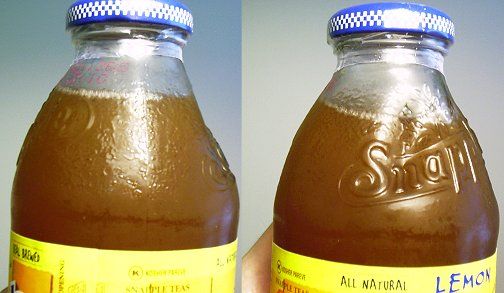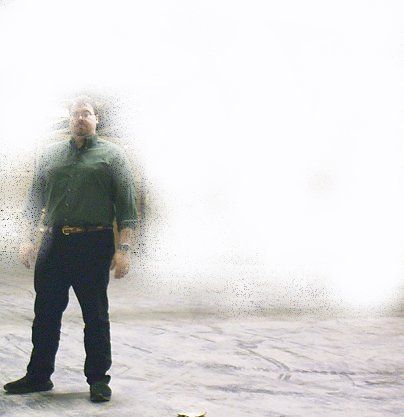Typically, when I was doing glass documentation, we would go to the factory and do a "survey," in which we would talk to the engineer(s) -- usually tape-recording the conversation to do a transcription later -- and sometimes take pictures and video. We would also collect blueprints and/or Computer Aided Drafting (CAD) files. Sometimes the engineers could provide notes and/or previous documentation that had been marked up; sometimes not. There were times when we had to do everything from scratch based on our conversations and interviews with the engineers and our observations of the equipment; sometimes we had plenty of notes and hardcopy materials from which to work.
Most companies understand that they must allow their engineers and subject matter experts time and resources so the writers can do their jobs. Many companies -- or portions of companies -- don't understand why documentation is important, or how to do it properly, so you do sometimes encounter resistance to the writer getting the job done. "My engineers can't waste time talking to you, they have work to do" is one departmental attitude I've encountered before. Other departments have actively involved me in their meetings, expecting regular status reports of all ongoing documentation. It is a pleasure to work with any company who understand the importance of GOOD documentation, because that makes my life a lot easier.
Writing a manual from scratch is exhausting in that early "survey" stage because you have to be absolutely mentally "on" the entire time. I hated that part, actually, and still do, simply because it is so taxing. You have to be keeping in mind during the conversation precisely what information you're getting, what information you don't have, questions that might come up later, pictures you'll need (keeping in mind that it is time- and cost-prohibitive to make another trip out and do all this over again -- you basically get one shot and no do-overs, depending on how far away the client is and how busy the engineers are). You have to have enough knowledge of what the manual must contain to know
what to ask, too.
More abstractly, you must be technically competent enough to know what you do and do not know. You don't have to be an engineer -- you can defer to their judgment -- but you have to know at least enough about equipment and industry in general to be able to ask questions and get the information, and to know when you've not gotten a sufficient answer. It would be like the engineer saying, "This bank of LEDs strobes different depending on whether we're looking for sidewall or dimensional defects," and me going, "What's an LED?" This technical knowledge comes only with practice. I learned from my father on the job; he was an electrical engineer for years before he became a technical writer, and was simply fortunate and intelligent enough also to be a competent wordsmith.
I, by contrast, have never held an engineering degree, but I learn quickly, absorb abstract concepts easily, and mentally shelve what I don't need to know in order to get the job done, filing those specifics under "Engineer's Judgment" or "Subject Matter Expert's Opinion Needed." What I do have going for me is a very good grasp of the mechanics of
writing. At this point, after ten years of doing this job, I have enough technical background across a diverse enough array of topics -- coupled with the field experience of dealing with engineering teams, getting information, writing and illlustrating manuals from scratch, working the diplomacy, etc. -- that I command a good salary and perform my job more than competently.
When companies go looking for writers, what they want will vary widely depending on what they prefer. Some expect writers to know as much as engineers, or to learn it -- that's the "old school" approach to technical writing. Others treat writers as glorified secretaries whose job it is to edit and make presentable information provided in total by the engineering staff (such writers are also paid accordingly -- that's the low-end part of the spectrum accessible through temping firms and such). Most companies will want you to have either the credentials OR the experience (I have never been employed by someone who demanded both, but then, I don't
have both). Job experience makes up for a lot.
As a technical writer, I have worked in-house as a direct employee, as a consultant contracted to the client, and in-house as a separate billing agency that essentially treats other direct employees in other departments as "clients." That's the whole gamut of possibilities, I think. It depends on the opportunity. All have their benefits and their liabilities.
Someone looking to break into technical writing for the first time would probably be best served by finding a company that does consulting and contracting work. There are many "temp" firms that have technical departments, like Adecco/TAD Technical, Spherion (formerly Interim Technologies), Manpower, Kelly (I was a "Kelly Girl" back when their temp literature still assumed most of their clerical employees were female). Some of these temp firms will administer tests to see how competent you are with basic office skills like typing and writing. They would be a good way to get your foot in the door and to amass some experience in related writing jobs, if you have none and don't necessarily have the right credentials.
If you are a competent writer, you're already ahead of the game if looking to become a technical writer. I have a portfolio of samples taken from various jobs (which gets harder to fill as my jobs become more information-sensitive -- a lot of the things on which I work cannot be shared outside the companies where I did the work and I always honor confidentiality agreements) that includes technical illustrations I've done, some newsletters, some Operations and Maintenance Manuals, and some other pieces of literature performed on the job. If assembling a portfolio from other types of writing, stick to non-fiction and journalism whenever possible. Don't use fiction unless you absolutely have nothing else, and even then don't expect to do very well with that.
One quick way to impress an employer is to assemble your own portfolio material by showing how YOU can improve others' work. Clip a sample of some documentation somewhere -- an advertisement for an industrial firm, or a set of instructions from a piece of equipment you bought, anything like that. Edit it and make it demonstrably better in terms of sentence structure, grammar, ease of reading, etc. Don't do this with those obviously-translated-from-Chinese instructions, though -- that's cheating. You'd be surprised how much bad writing exists out there. For example, a web search on Industrial Coolers brought me this text for an auction of an old vintage cooler:
One of the smallest coin operated coolers ever made, this cooler was produced in the late 1930s. The cooler was filled with ice, and could vend 12 bottles. Believe it or not, an even smaller model was also produced, which could hold only 8 bottles. Measures 16.4 inches wide by 10.5 inches high. This piece has been completely restored with the exception of the coin mechanism, which is not in working order.
The text can be improved for structure and reading level (always dumb down) as follows:
This vintage cooler, produce in the late 1930s, is among the smallest coin-operated units ever made. It was filled with ice and could vend twelve bottles. (An even smaller model -- which held only eight bottles -- was also available.) This completely restored piece measures 16.4 inches wide by 10.5 inches high. The coin mechanism DOES NOT function.
There are a lot of conflicting rules at play. For example, you generally write out numbers from one to ten, but not when the numbers are followed by units. You shouldn't use a comma after "and" unless you're writing a list (most people don't know this rule). The parenthetical statement about the smaller unit should probably be ditched completely, because it actually makes the advertised unit seem less desirable (it's not the smallest unit ever made, so why do I want to buy it instead of one of those eight-bottle units...). I tend to over use the m-dash or "--," but that's a personal style. See all the room there is for improvement, though?
I am happy to answer any questions you have, here or in e-mail. Keep in mind, though, that I can only draw from my own experiences; there are other writers whose career paths and job experiences are quite different, I am sure.



